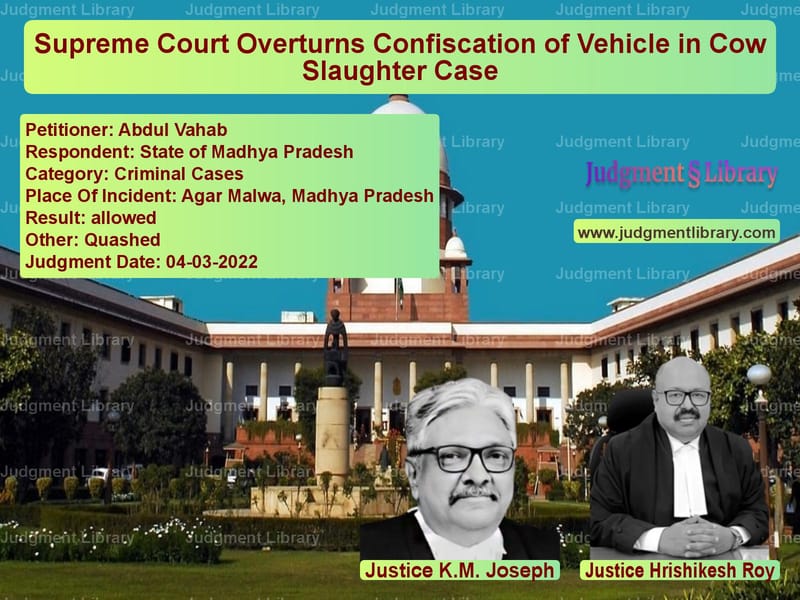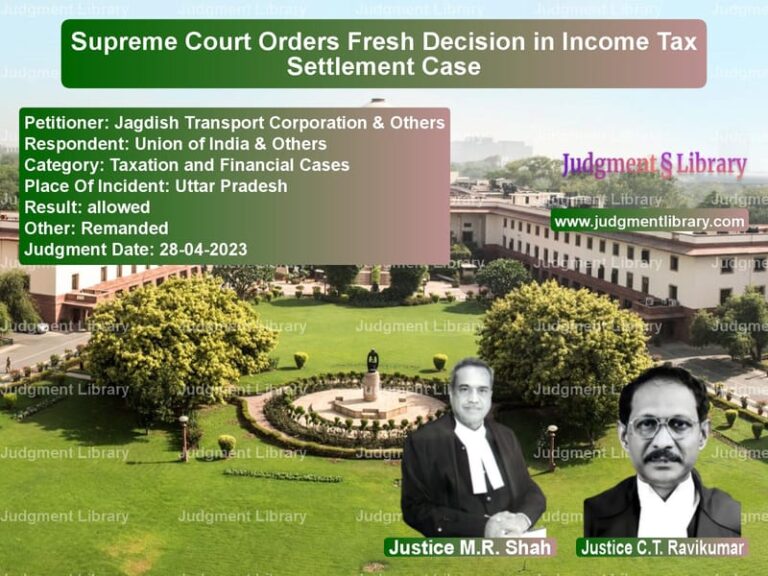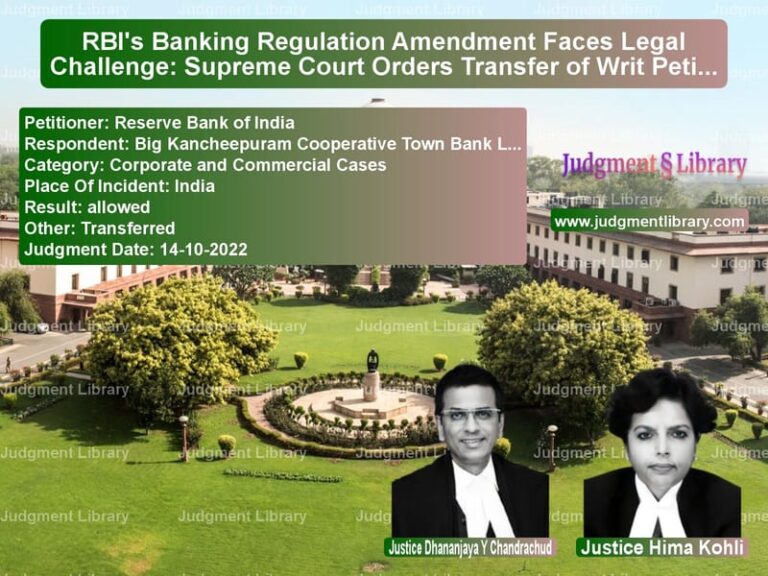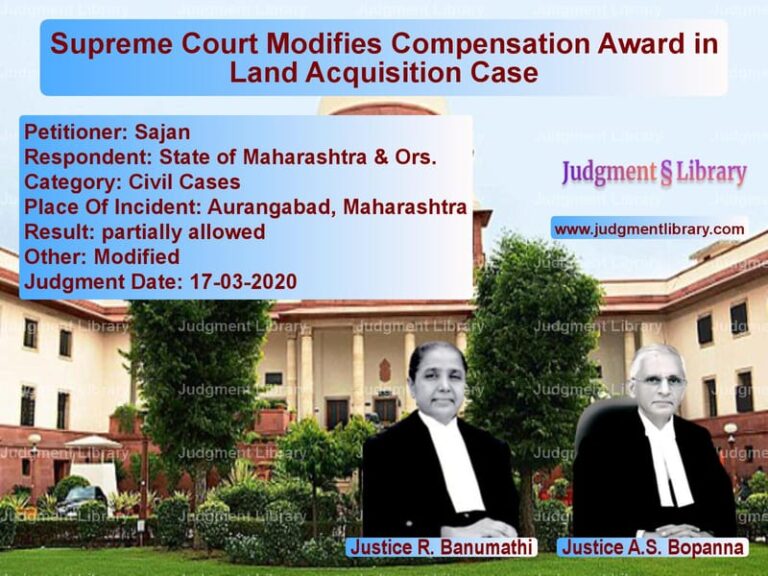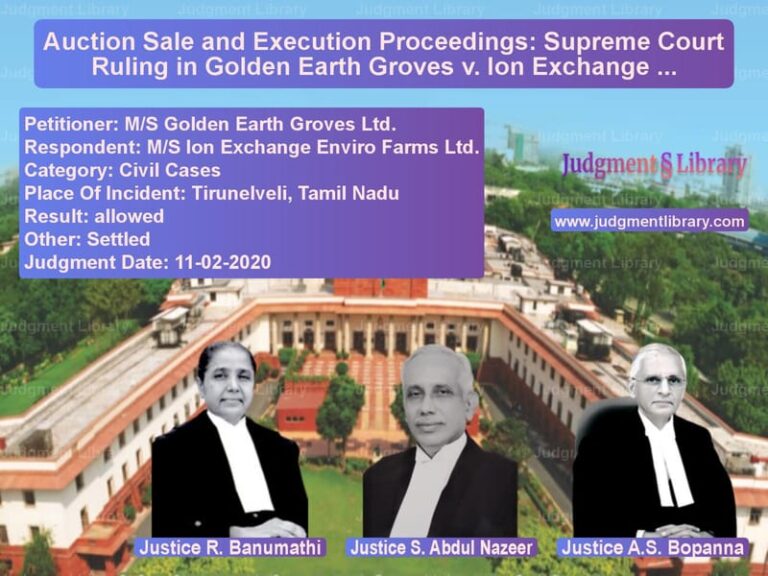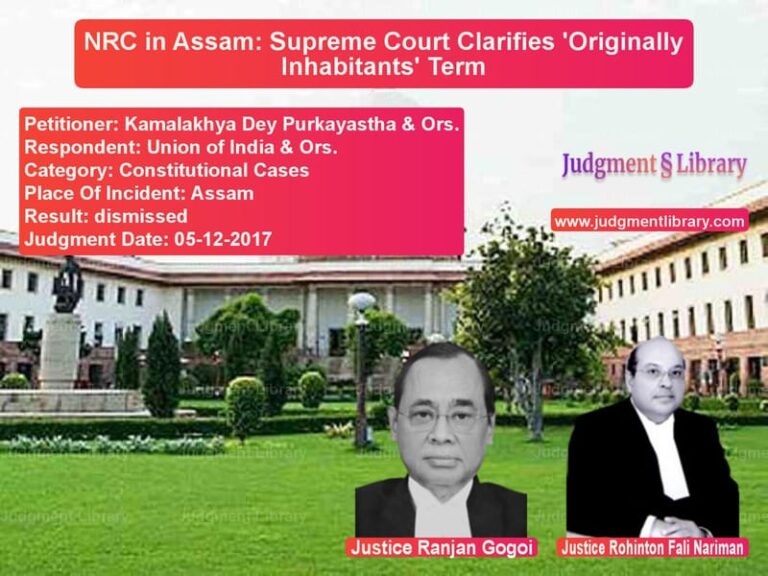Supreme Court Overturns Confiscation of Vehicle in Cow Slaughter Case
The case of Abdul Vahab vs. State of Madhya Pradesh is a crucial ruling regarding the confiscation of vehicles under the Madhya Pradesh Prohibition of Cow Slaughter Act, 2004. The Supreme Court ruled that the confiscation of a vehicle after the acquittal of the accused is arbitrary and violates the fundamental rights of the owner.
This appeal was filed by the petitioner, whose truck was confiscated despite the acquittal of all accused in a criminal trial related to the transportation of cattle. The Supreme Court ruled that the confiscation order was unsustainable and must be overturned.
Background of the Case
The dispute arose when the appellant’s truck, bearing registration number MP/09/GF/2159, was intercepted while transporting 17 cow progeny. The driver and a passenger in the vehicle were arrested, and an FIR was registered under Sections 4 and 9 of the 2004 Act and Section 11(d) of the Prevention of Cruelty to Animals Act, 1960.
Read also: https://judgmentlibrary.com/criminal-limitation-period-supreme-court-clarifies-computation-of-time/
Following the arrests, the District Magistrate, exercising powers under Section 11(5) of the 2004 Act, ordered the confiscation of the truck. The appellant challenged this order before various forums, including the Additional Commissioner, Ujjain, and the Additional Sessions Judge, Ujjain, both of whom upheld the confiscation.
Key Legal Issues
- Whether the confiscation of the vehicle was justified after the acquittal of the accused.
- Whether the District Magistrate had the authority to confiscate the truck in the absence of a criminal conviction.
- Whether the confiscation order violated the fundamental rights of the vehicle owner under Article 300A of the Constitution.
Arguments by the Petitioner (Abdul Vahab)
The appellant contended:
- All accused in the criminal trial were acquitted as there was no evidence that the cattle were being transported for slaughter.
- The confiscation order was arbitrary and ignored the acquittal of the accused.
- The prosecution’s own veterinary doctor testified that the animals were healthy and fit for agricultural purposes.
- Under the ruling in Nitesh vs. State of M.P., seizure of a vehicle is unwarranted unless the criminal offense is proven.
Arguments by the Respondents (State of Madhya Pradesh)
The respondents argued:
- Confiscation proceedings are independent of criminal trials and can be maintained even if the accused are acquitted.
- The burden of proof under Section 13A of the 2004 Act is on the accused.
- The Veterinary Assistant Surgeon (PW-4) provided evidence justifying the confiscation of the vehicle.
- Confiscation serves as a deterrent to prevent future offenses.
Supreme Court’s Observations
The Supreme Court analyzed whether the confiscation of the truck was justified despite the acquittal of the accused. The Court made the following key observations:
- The criminal trial resulted in acquittal due to lack of evidence proving that the cattle were being transported for slaughter.
- The prosecution’s key witnesses, including the Investigating Officer, did not testify on any direct involvement of the accused.
- The confiscation of the truck, despite the acquittal, amounted to an arbitrary deprivation of property, violating Article 300A of the Constitution.
- Section 13A of the 2004 Act, which shifts the burden of proof, applies to criminal prosecution but not to confiscation proceedings.
Based on these findings, the Supreme Court ruled:
- The confiscation order was quashed.
- The High Court’s decision upholding the confiscation was set aside.
- The truck must be returned to the appellant without any additional conditions.
Legal Precedents Considered
The Supreme Court referred to multiple judgments on confiscation and property rights:
- State of M.P. vs. Madhukar Rao (2008): Held that criminal courts have jurisdiction to order the release of confiscated property.
- State of W.B. vs. Sujit Kumar Rana (2004): Established that confiscation should not be automatic and must be based on proven guilt.
- Bangalore Medical Trust vs. B.S. Muddappa (1991): Stated that deprivation of property must conform to legal procedures.
Impact of the Judgment
This ruling has significant implications for property rights and confiscation laws:
- It ensures that vehicles cannot be confiscated arbitrarily when the accused are acquitted.
- It clarifies that confiscation proceedings must be backed by solid evidence.
- It upholds the constitutional right against deprivation of property without due process.
- It sets a precedent that acquittal in a criminal case must be considered in related confiscation proceedings.
By ruling in favor of the appellant, the Supreme Court reaffirmed that the government cannot continue to hold property without legal justification and that fundamental rights under Article 300A must be protected.
Petitioner Name: Abdul Vahab.Respondent Name: State of Madhya Pradesh.Judgment By: Justice K.M. Joseph, Justice Hrishikesh Roy.Place Of Incident: Agar Malwa, Madhya Pradesh.Judgment Date: 04-03-2022.
Don’t miss out on the full details! Download the complete judgment in PDF format below and gain valuable insights instantly!
Download Judgment: abdul-vahab-vs-state-of-madhya-prad-supreme-court-of-india-judgment-dated-04-03-2022.pdf
Directly Download Judgment: Directly download this Judgment
See all petitions in Fraud and Forgery
See all petitions in Custodial Deaths and Police Misconduct
See all petitions in Judgment by K.M. Joseph
See all petitions in Judgment by Hrishikesh Roy
See all petitions in allowed
See all petitions in Quashed
See all petitions in supreme court of India judgments March 2022
See all petitions in 2022 judgments
See all posts in Criminal Cases Category
See all allowed petitions in Criminal Cases Category
See all Dismissed petitions in Criminal Cases Category
See all partially allowed petitions in Criminal Cases Category

